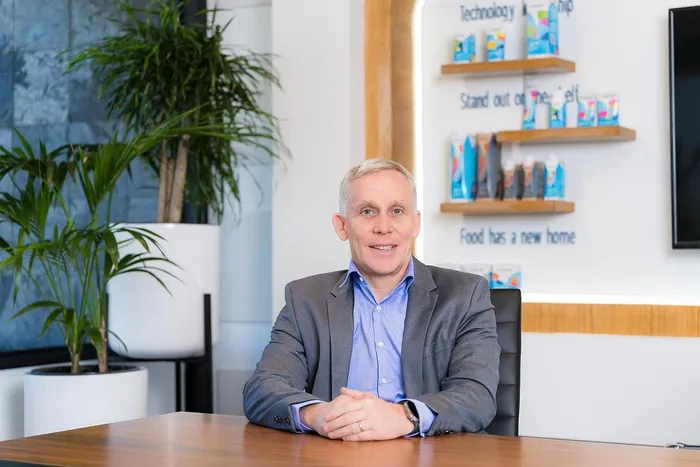Tetra Pak addresses changing consumption dynamics through innovation in South Africa
MANUFACTURING

Tetra Pak South Africa managing director, Klaus Plenge. Tetra Pak suppliers food packaging and processing material in South Africa and Southern African countries such as Zimbabwe.
Image: Supplied
Tawanda Karombo
Tetra Pak South Africa managing director, Klaus Plenge, has underscored the imperative for food manufacturers to innovate amidst mounting sustainability demands and a heightened focus on food safety.
Following a series of alarming food poisoning incidents, particularly impacting young children, the conversation around food safety has reached a new crescendo in South Africa.
Tetra Pak suppliers food packaging and processing material in South Africa and Southern African countries such as Zimbabwe.
In a recent interview with Business Report, Plenge said that food safety was now a top concern for local food processors.
“We have a very young population and a growing need for food in the region with changing demand dynamics that also pose challenges and opportunities for companies,” Plenge said.
“People are eager to have safe food and to have it available… what we need to make sure is that the packaging can give that safety and extend the shelf life.”
This was also driving innovation in packaging and processing, with Tetra Pak now manufacturing about 90% of its packaging materials in South Africa and exporting into the region.
“We used to import a lot, but today we’re producing almost 90% of our packaging locally,” Plenge noted.
Tetra Pak has a significant presence in the South African and regional dairy industry.
Plenge said the dairy industry was “well developed in South Africa” although “some concerns have emerged now with the foot and mouth disease” outbreak that could impact on milk productivity.
Within the Southern Africa region, Plenge said the dairy sector was “a different” story.
“The production of milk is not at the level like in South Africa. It's smaller in the region and dairy faces different challenges like diseases and water issues,” he said.
In Southern Africa, Tetra Pak is set to relaunch its recycling initiative in Zimbabwe next month after what the company described as a “promising but foundational” pilot phase in 2024.
The recycling project, signed with dairy companies in Zimbabwe such as Prodairy, Dairibord and Dendairy among others, focuses on setting up collection points for packaging materials.
The collected material is then shipped for recycling in South Africa.
“Last year was very successful, but not as much as we wanted. We now have a better mapping of the opportunity. In August, we will relaunch the recycling collection in Zimbabwe,” Plenge said.
Sustainability has become a key strategy point for food manufacturing companies and the value chain, especially in the midst of the global race to reduce carbon emissions and to reduce usage of material that harms the environment.
The Zimbabwean recycling initiative had received strong support from government bodies aligned with environmental and sustainability goals.
The Zimbabwe market had embraced the innovative Recart packaging for beans, which heralded a shift from tinned packaging for beans.
Other food and milk processing companies in South Africa such as Nestlé have also been innovating around packaging to boost sustainability efforts in the country and in the region.
“We’ve transitioned to recyclable packaging formats like bag-in-box to reduce plastic waste and carbon emissions. Our factories are implementing water-saving technologies,” Conny Sethaelo, spokesperson for Nestlé East and Southern Africa said in an interview.
BUSINESS REPORT